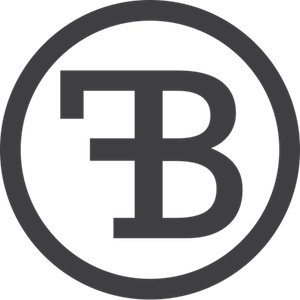Institutions differ but digital challenges for democracy unite us in the digital age. This was one of the overall conclusions of the intensive 3-day transatlantic meetings between Finnish Faktabaari and University of Washington Center for an Informed Public (UW CIP) media and information literacy experts in June in Seattle, USA.
Faktabaari experts were invited to share with US researchers and State of Washington teachers good Finnish educational practices that have earned Finland to rank many years 1st e.g. in media literacy index. The context and the expectations for the event was well described by our CIP Co-Founder Jevin West in his blog.

Faktabaari showing their FactHacker-video.

CIP Co-Founder Jevin West.
“Teaching for Resilience: Finnished workshop” gathered more than 40 US teachers predominantly from Washington State for a 2-day professional development event focused on structures and methods to resist mis- and disinformation. The Faktabaari and UW CIP media and information literacy materials in English are openly available here.
Many Finnish media welfare institutions, policies or much of the whole-of-society approach to tackle proactively mis- and disinformation cannot directly be adopted to US federal context while on the Washington state level benchmarking made sense to all participants. Whereas Finnish approach to teach digital media literacy from early education to tackle mis- and disinformation will take time to implement. However, there were plenty of ideas which might be further developed and adapted to US classrooms.
At least 3 take-aways could be highlighted:
- Invest in teachers. The key takeaway for teachers was that digital information literacy skills can be integrated in many subjects at all the levels. But the teachers need to be upskilled, they should be provided with good materials and support from the school management. Finnish teachers require a master’s degree university education.
-
Agree a sustainable approach to ChatGPT and AI as a learning assistant before it is too late. All participants were puzzled by the quick development of Artificial Intelligence on learning based on presentations. Finnish as well as US participants underlined the need of both ethical discussions and practical guidance for school level to underline that critical thinking and homework cannot be outsourced to ChatGPT. ChatGPT won’t qualify as a trustworthy source and it cannot do your homework while it has potential when used transparently as an assistant to study the topic. As a chatty humanlike interface, ChatGPT seems to overpass some of our defenses we have in view of other machine content. We need layman material on what ChatGPT is and what it can and cannot do. Faktabaari and CIP plan to continue exchanging on this acute question that was further discussed also in view of risks to 2024 elections in EU and US.

- Invest in basic reading skills. Next to presenting Faktabaari Digital Information Literacy toolkit for Educators teaching on mis- and disinformation, the discussion was brought back to basic reading skills in overall decline. The Finnish example suggests that wide vocabulary supports interpreting persuasive contents or outright propaganda. Basic reading skills correlate with resilience. Even in Finland studies indicate a worrying decline in youth vocabulary and reading skills as communication has become more and more visual. Reading offline was recommended as a great antidote for hectic online information chaos contributing to short attention span. US schools have a strong tradition for school libraries.
On individual innovative hand-on practices, Finns surprised US colleagues by crediting US origin “Donald Duck” comics for major contributions to about 40% of current Finnish adults’ elementary reading skills. Finnish Donald Duck’s editorial line and legacy of exemplary and particularly creative Finnish language is worth noting as social innovation. Finnish Aku Ankka also recently published a scalable and educative “Fake news” edition whose impact on catalyzing classroom level, teacher-led debates on information disorders has been a success in Finland.

This“Fake news” edition has, according to the Finnish publisher, been successfully tested in many European countries. Would it be time to bring the educative Donald Duck back to home? Cooperation and creative solutions are needed on both sides of Atlantic.
More info:
Faktabaari - Digital Information Literacy (DIL) resource https://faktabaari.fi/dil/
UW CIP report on lessons learned from Finland: https://app.leg.wa.gov/ReportsToTheLegislature/Home/GetPDF?fileName=CIP_Finland_Report_FINAL_1c352f42-aefb-4505-8a25-21bffdbfe796.pdf
Media literacy in Finland: https://medialukutaitosuomessa.fi/en/

Mikko Salo together with virtual escape room Loki Loop’s developers at UW library.

